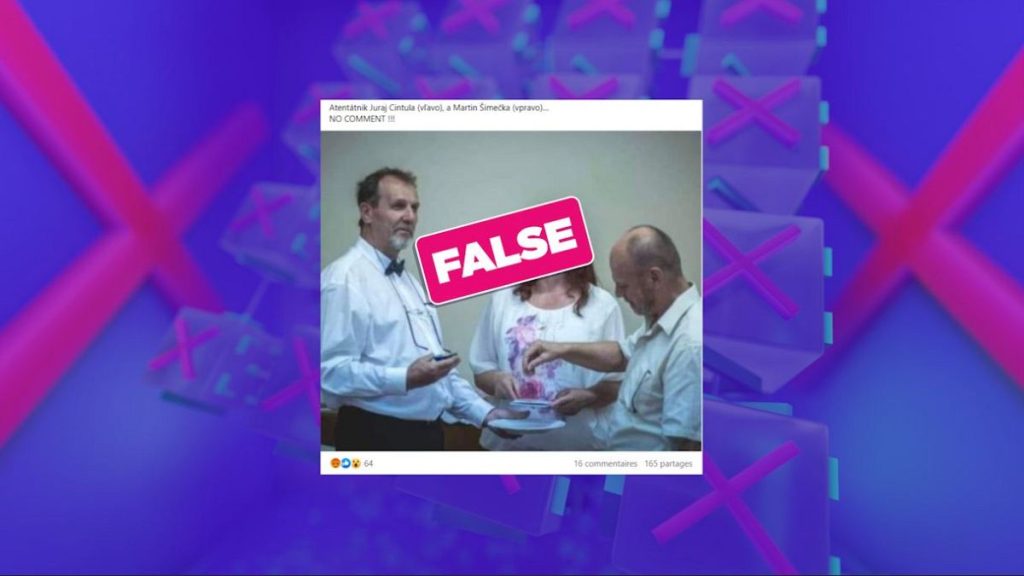As European elections approach, misinformation is increasingly targeting EU leaders and the European Union itself through social media platforms. False narratives are being spread in an attempt to discredit political rivals or misinform the public about EU regulations. One recent example includes the shooting of Slovakia’s Prime Minister Robert Fico, where online misinformation falsely claimed an association between the alleged attacker and the leader of the opposition party Progressive Slovakia. Facebook has labeled this post as false information, highlighting the dangers of spreading misinformation ahead of the elections.
In Poland, Prime Minister Donald Tusk has been targeted with misinformation that accuses him of attacking Polish identity. A TikTok post claimed that Tusk called Polishness ‘an abnormality’ in the past, but this statement actually came from an article written over 40 years ago. Tusk’s article was critical of Poles’ attitudes towards reality during the communist regime, but he ultimately affirmed his identification with his Polish identity. As a prominent pro-EU figure, Tusk’s reputation is being attacked with misinformation just weeks before the elections, illustrating the impact of false narratives on public perception.
Another false narrative circulating on social media claims that the EU is banning cash payments of over €100,000. While the EU has approved new anti-money laundering rules that include restrictions on cash transactions over €100,000 for professional traders, these limits do not apply to all transactions. Private transfers between individuals in a non-professional context are excluded from this rule. It is crucial that accurate information is shared ahead of the European elections so that voters can make informed decisions based on factual information rather than false narratives.
Misinformation targeting EU leaders and institutions is a growing concern as European elections draw near. Social media platforms have become breeding grounds for false narratives and misleading information, which can have significant consequences on public perception and decision-making. The shooting of Slovakia’s Prime Minister, accusations against Poland’s Prime Minister, and misrepresentations of EU regulations all highlight the urgency of combating misinformation and ensuring that accurate information is shared with the electorate to preserve the integrity of the democratic process.
With the rise of misinformation campaigns targeting EU leaders and institutions, it is essential to prioritize the dissemination of accurate information and combat false narratives that seek to mislead the public. The impact of misinformation on public perception, particularly in the lead-up to the European elections, can have far-reaching consequences for democracy and the integrity of the electoral process. By addressing and debunking false narratives, EU leaders and institutions can work towards safeguarding the truth and ensuring that voters have access to reliable information as they make decisions at the ballot box.
As the European elections approach, the prevalence of misinformation targeting EU leaders, such as the shooting of Slovakia’s Prime Minister Robert Fico and accusations against Poland’s Prime Minister Donald Tusk, underscores the importance of combatting false narratives and ensuring the dissemination of accurate information. Misinformation campaigns on social media platforms have the potential to influence public opinion and decision-making, highlighting the need for vigilance in verifying information and addressing misleading claims. By promoting transparency and accuracy in information sharing, EU leaders can uphold the integrity of the electoral process and protect democracy from the harmful effects of misinformation.


